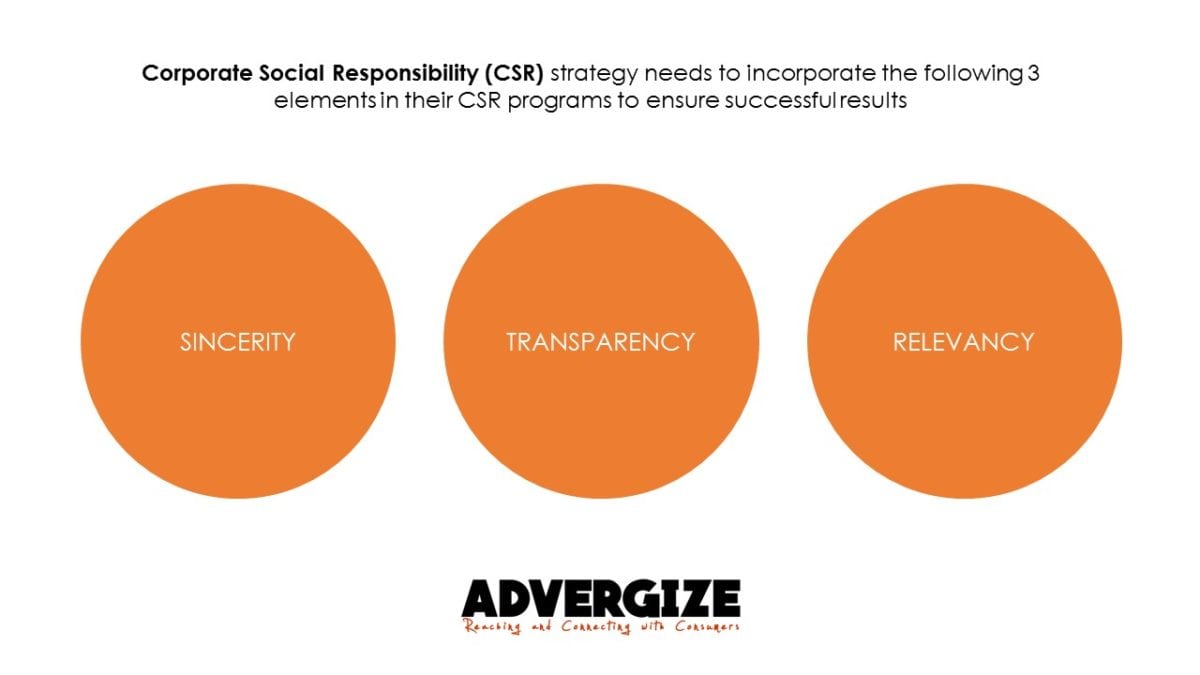Many-a-times companies associate themselves with a number of Corporate Social Responsibility (CSR) initiatives. They do this by contributing to charity organizations and various cause based sponsorship in hopes of improving their business reputation in the eyes of consumers’. But is this approach effective? Does it generate any ROI for your efforts in community participation?
Not when motives behind such CSR programs are just to ‘appear’ socially responsible. Long gone are the days when people associated credibility to press releases and corporate sponsored causes. We’re living in times when the consumers are evolving: they’re highly aware of their surroundings, they know how things work, are always connected and can see right through corporate marketing initiatives.
Unless your consumers see sincerity, relevance and transparency in your CSR initiatives, your efforts are bound to fail.

1. To truly reap the benefits of CSR, companies can start with understanding what really matters to their audience.
The best way to connect with someone is to empathise with them by putting oneself in their shoes. Marketers should adopt the same approach when working on CSR marketing campaigns. That’s where powerful insights can be identified.
2. Be honest, open and transparent about their CSR affiliations
No one expects a business to spend all their money for cause related activities. People understand that businesses exist to make money. Be honest and open about why you want to support a certain social initiative, and be transparent on how you plan on doing that.
3. Engage with the community not sway from their commitments
Continuous engagement with the community breeds transparency and sincerity. Keep everyone updated on potential next steps and ask people for ideas on how they can move forward. You will be surprised with how people can go out of the way to support a company that is known to be honest and transparent.
Companies need to take note of this, and really get their CSR strategy aligned to what consumers care for. They should only support causes that have a meaningful relevance to the category in which their business operates.





